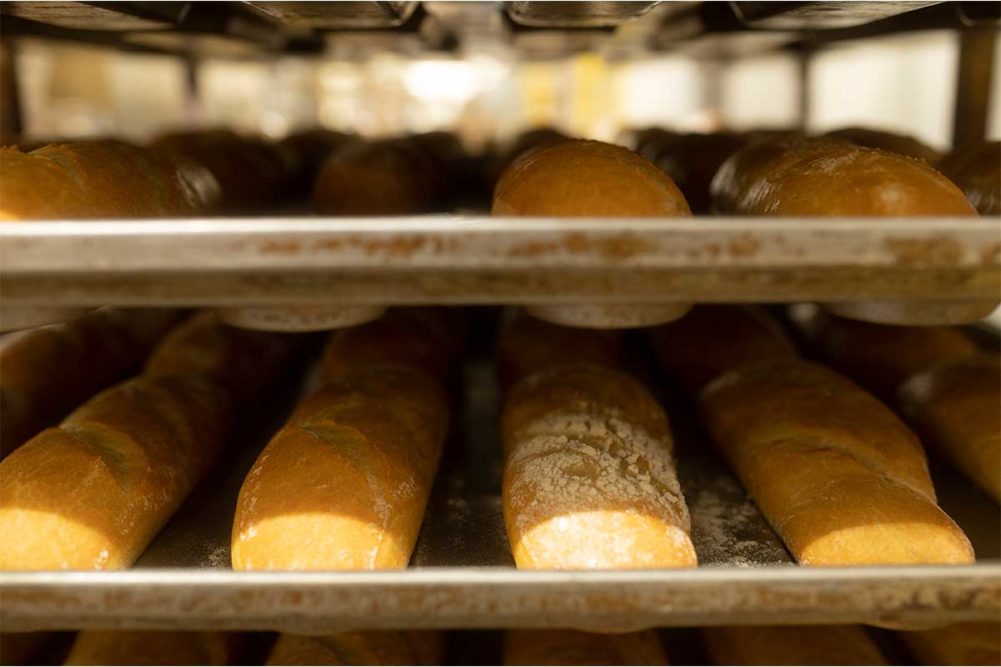Spiros Assimacopoulos, chief executive officer, is always on the lookout for an opportunity to expand The Good Bread Co., Taylor, Mich., but growth takes resources, especially in terms of capital and equipment. An acquisition provided a second bakery facility, wider geographic reach and more customers. So despite the challenges faced in 2020, the team at the previously named Michigan Bread decided to pursue an acquisition.
“There was a lot of uncertainty in the business and in the world at that time,” Mr. Assimacopoulos said. “We understood the risk but believed this acquisition would ultimately make us a stronger organization. The transaction closed in September of 2021 and has been transformational for both facilities.”
Franklin Street Bakery was attractive not only because the product portfolio and customer base were similar — artisan breads for foodservice — it was a less complex business model. All the finished product is frozen, simplifying distribution, and the team was very self-sufficient.
While Franklin Street Bakery had a simplified business model and great team, it was also capacity constrained, and as Mr. Assimacopoulos walked through the bakery, he saw what he could bring to the operation.
“I had ideas of how we could unlock all this capacity,” he said. “It was a mutually beneficial acquisition. Combined we are both years ahead of where we would be.”
Franklin Street Bakery is now internally known as the West Bakery and the Michigan Bread Co. facility is known as the East Bakery. To bring these two operations together for optimal efficiencies, the company integrated its accounting and finance and sales and marketing teams. The Good Bread Co. is currently testing an ERP system it hopes to use in the future to coordinate and streamline production across both bakeries.
“The general approach is collaborative, focusing on integrating when practical and not for the sake of it,” Mr. Assimacopoulos said. “The most impactful result of the acquisition has been the brain share between teams. I cannot overstate the value created from teams working across different plants to collectively solve problems.”
There has also been a rationalization of SKUs, both due to the pandemic and the acquisition. Currently, the East Bakery is producing 98 SKUs from frozen product and 50 for DSD, which is half what the bakery was producing in 2019, and the West Bakery is producing 93 SKUs, down from 155. Mr. Assimacopoulos hopes to reduce those numbers even more as the company moves toward a continuous process.
“SKU rationalization is more than just a math problem,” he said. “You have to factor in changeover cost and waste, looking at the whole process honestly and choosing to focus on what you’re good at. We have to really evaluate the cost of getting better at some of these products and decide if that cost is worth it in the end and of course how it will impact our customers.”
Product has changed hands as well, shifting to be produced in whatever facility makes the most sense. Sometimes that’s based on geography: It makes sense to produce a baked good in the facility where it will have to travel the shortest distance. Capability comes into play as well in those decisions. Eventually, the West Bakery will mostly produce pan breads with some bun capabilities while the East Bakery will focus on artisan breads, playing to each facility’s strengths.
This article is an excerpt from the October 2022 issue of Baking & Snack. To read the entire feature on The Good Bread Co., click here.





